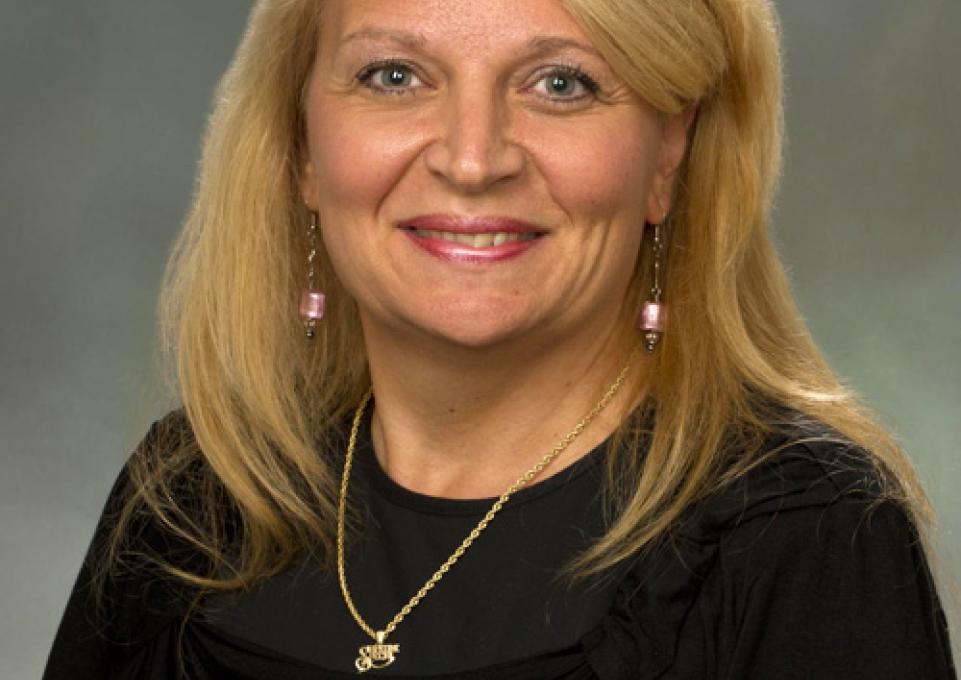
When parents of children with autism syndrome disorder (ASD) approach Kathy Doody, Buffalo State assistant professor of exceptional education, for advice, she can provide more than clinical facts or treatment theories. She also can share her personal experience.
Doody discovered her son, Kevin, had a form of autism when he was only 14 months. The former kindergarten teacher knew the sooner they began interventions, the better the outcome. After initial treatment through Erie County’s Early Intervention Services, Doody enrolled Kevin at Summit Educational Resources for treatment. When therapists started using applied behavior analysis (ABA) with Kevin, she really started to see improvement.
“This was the big turning point,” she said. “He came into our world, started communicating and having more interactions with people.”
Kevin, now 17, attends Williamsville North High School and is doing “beautifully.”
While he attends specialized math and English language arts classes, he also takes several mainstream courses, such as studio art, advanced technology, and music theory.
“He has a social life, is accepted by peers, and even at age 17 continues to gain new skills,” she said. “There are so many more possibilities open to him than in the past. The outlook is pretty promising.”
Her son’s diagnosis prompted Doody to pursue a master’s degree in exceptional education at Buffalo State 14 years ago and to help children throughout the autism spectrum break through barriers and connect with the world.
At Buffalo State, Doody spends much of her time teaching the next generation of exceptional education teachers best practices for working with children with autism, along with other disabilities. Such training is more crucial now than ever. According to the Centers for Disease Control and Prevention, one in 68 children falls somewhere on the autism spectrum — a 30 percent increase over two year ago.
With the increase in diagnoses has come more advanced treatment, especially when it comes to technology. Children who are nonverbal can now use iPads and special apps to communicate, for instance. Over the past two decades, Doody also has seen a shift in public understanding of autism, which she didn’t experience when Kevin was a young boy.
However, there is progress to be made. Some parents still feel uncomfortable with strangers’ reactions to their children’s unpredictable behavior, she said, and as a result, they make few outings as a family. To ease the isolation, Doody helped create “Au-Some Evenings,” a monthly night out at the Explore & More Children’s Museum in East Aurora. One Friday night a month, parents can bring their children with autism and those with typical development to play together in a safe setting.
“Parents say that people (at Au-Some Evenings) understand autism,” said Doody, who provided training to museum staff before the program launched in September 2012.
Doody also is leading a research study on play and children with autism and another on the value teacher candidates find working with children with ASD in recreational and community-based programs.
“My premise is that teacher preparation programs should embed more authentic opportunities into our preparatory programs for exceptional education teachers,” she said, “which allow them to work with children and families outside of a classroom setting.”
As a professor, Doody is leading the way for new and more innovative ways of teaching children with ASD. As a parent, Doody understands the joy of seeing a child overcome obstacles and master skills that once seemed impossible.
